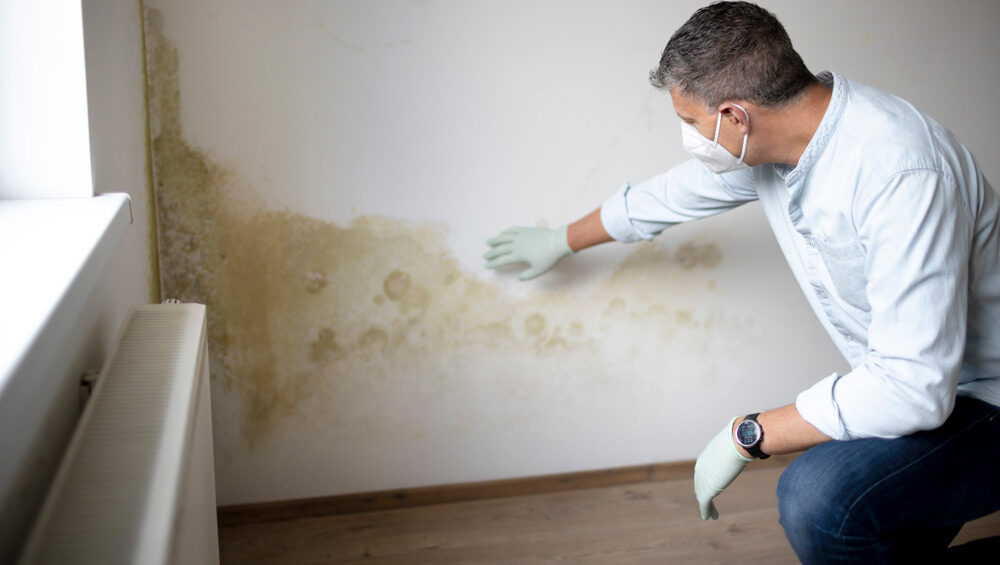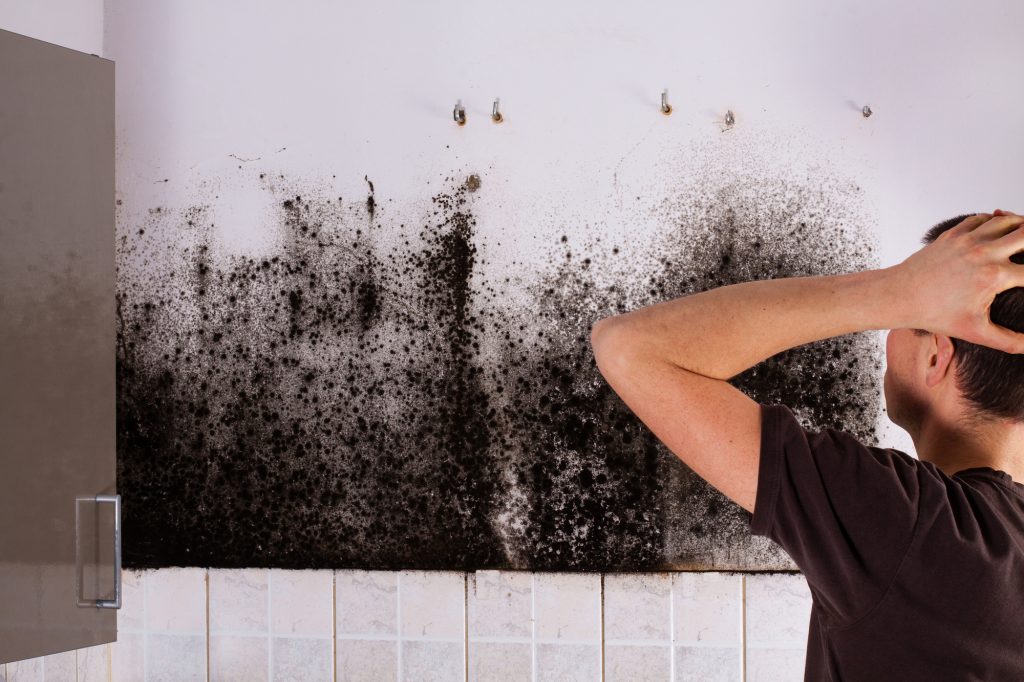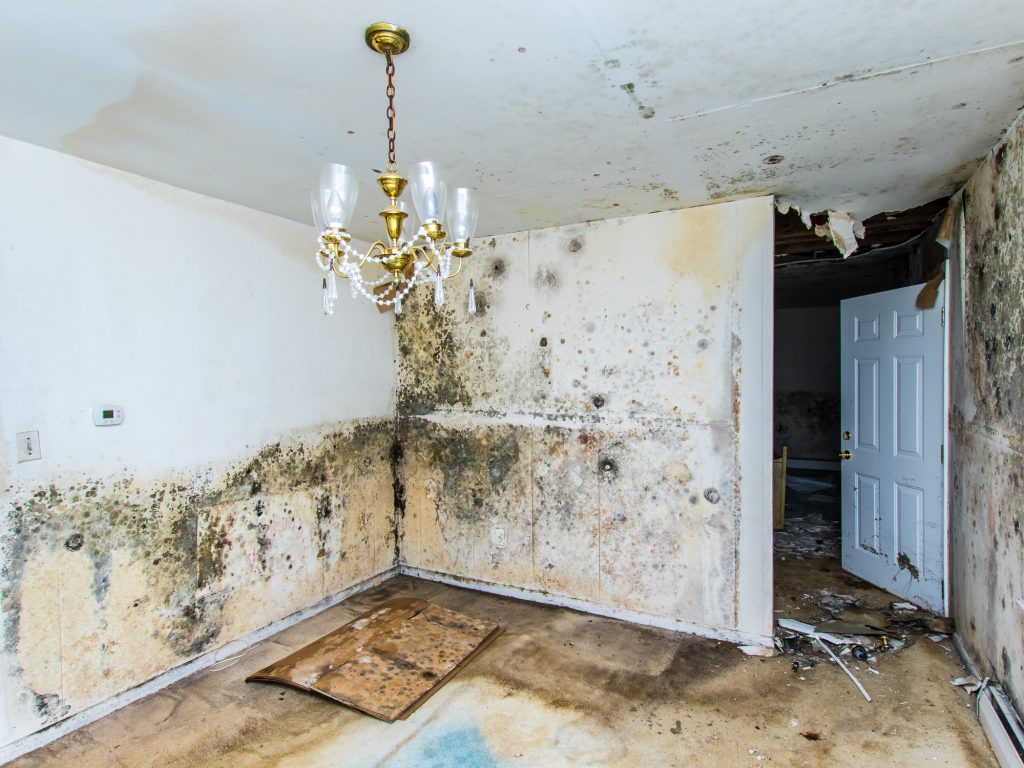Are you worried about the mold creeping up the walls of your Texas home, wondering if it’s going to cause a hitch in your sale plans??
You’re not alone.
Mold is an issue many homeowners face, and it can be especially troubling when you’re looking to sell.
Interestingly, Texas law is quite specific on this matter: sellers must inform potential buyers about any known mold issues in their house.
Dealing with mold isn’t just a cleaning task—it’s a legal puzzle too. Our article will lay out what Texan sellers must consider before handing over the keys.
[gravityform id=”1″ title=”true”]
From understanding different molds to grasping buyer’s rights, we’ll guide you through selling your mold-affected property without stepping into legal quicksand.
Whether you decide to scrub away every spore or sell as-is, we’ve got the intel you need.
Keep reading for solutions that make dealing with mold less of a headache and help keep those sales prospects bright!
Quick Summary
- Texas law requires sellers to disclose any known mold issues in a property before entering into any contract with potential buyers. Failure to do so can lead to legal liabilities and potential lawsuits.
- Sellers have the option of addressing and fixing mold issues before selling or selling the house as-is, but in both cases, full disclosure about the presence of mold is essential to maintain trust and transparency.
- Mold growth in homes can pose health risks, impact insurance policies for both sellers and buyers, and result in legal consequences if not disclosed appropriately.
- Understanding common causes of mold problems, such as excess moisture due to water leaks or high humidity levels, is crucial for maintaining a healthy living space and preventing legal concerns when selling your house with mold in Texas.
Understanding Mold in the Home
Mold growth in homes can be classified as good or bad, with the latter posing health risks to occupants. Common causes of mold problems include moisture buildup and poor ventilation.
Understanding the differences and risks associated with mold growth is essential for homeowners looking to sell their property.
[gravityform id=”1″ title=”true”]
Good mold vs. bad mold
Some molds are harmless and can be found in foods like cheese. These types don’t usually hurt your health or home. Bad mold, however, can cause harm. It might lead to allergies or breathing problems.
In homes, bad mold grows when there is moisture, such as after a leak or flood.
If you spot mold in your house, it’s important to deal with it fast. You need to fix leaks and dry wet areas to stop more mold from growing. Before selling your home, Texas laws say you must tell buyers about mold.
This helps them know what they’re buying and keeps you from legal trouble later on.

Risks associated with mold growth
Mold growth in a house can lead to health problems for the people living there. Some molds produce allergens, irritants, and even potentially toxic substances.
This can cause allergic reactions or respiratory issues in people exposed to mold spores.
Buyers may also be concerned about the costs of remediation and potential future health risks when considering a home with mold.
Moreover, if mold is discovered after purchase and was not disclosed by the seller, it could lead to legal disputes between buyers and sellers.
The state of Texas law requires sellers to disclose the presence of mold to potential buyers before entering into any contract.

Common causes of mold problems
Mold can grow due to excess moisture in the home, often caused by water leaks, flooding, or high humidity levels.
Poor ventilation in areas like bathrooms and kitchens can also lead to mold growth.
Additionally, improperly repaired water damage and wet building materials can create an environment conducive to mold growth.
Improper maintenance of HVAC systems and air ducts can contribute to mold problems as well. If not cleaned regularly, these systems can circulate mold spores throughout the house, leading to potential mold issues.
Addressing these common causes of mold problems is crucial for maintaining a healthy living space and preventing legal concerns when selling a house that has mold in Texas.
[gravityform id=”1″ title=”true”]
Legal Considerations When Selling a House with Mold in Texas
In Texas, sellers are required to disclose any known mold issues in the home. Failure to do so can result in legal liabilities and potential lawsuits from buyers.
Additionally, the presence of mold can impact insurance policies for both the seller and the buyer.
Disclosure requirements
Texas law requires sellers to disclose the presence of mold to potential buyers before entering into any contract.
Buyers will want to see proof that the seller has taken steps to stop the mold from growing and has corrected any contributing factors.
It is legal to sell a property that has mold in Texas, but sellers must disclose the presence of mold to buyers.
- Sellers must provide a written statement disclosing any known mold present in the property.
- The disclosure should include information about past or present remediation efforts for the mold.
- Sellers should be transparent about any moisture issues that may have contributed to mold growth in the home.
- If there are ongoing mold issues, sellers need to inform buyers of their plans for addressing the problem.
- Providing documentation of professional mold inspections and remediation can help build buyer trust and confidence.
- Failure to disclose known mold problems can lead to legal consequences for sellers and impact future transactions.
- Proper disclosure contributes to an open and honest real estate transaction, maintaining trust between all parties involved.
[gravityform id=”1″ title=”true”]
Potential liabilities for sellers
When selling a house with mold in Texas, it is important to understand the potential liabilities.
Sellers can face legal and financial consequences if they fail to disclose mold issues adequately.
Here are some crucial considerations for sellers:
- Failure to disclose mold problems can lead to lawsuits from buyers, resulting in legal expenses and potential payment of damages.
- Sellers may be required to compensate buyers for the costs of mold remediation if they did not disclose the presence of mold before the sale.
- Non – disclosure of mold issues can damage the seller’s reputation and lead to difficulties in future real estate transactions.
- In severe cases, sellers could be held liable for fraud if they knowingly conceal or misrepresent mold problems during the sale.

Impact on insurance policies
Sellers should also consider the impact of mold on their insurance policies.
While some insurance companies may provide coverage for mold damage, others might exclude it from standard policies.
Therefore, sellers need to review their insurance coverage and understand how mold issues may affect their policy before selling the house.
Additionally, addressing any existing mold problems can help maintain or even lower insurance premiums, potentially benefiting both sellers and buyers in the long run.
Proper disclosure and remediation of mold can play a crucial role in safeguarding the seller’s interests when it comes to insurance matters related to the property.
Additional Real Estate Advice:
- Working With A Realtor To Sell Your House in San Antonio
- Tips For Selling Your House For Cash Quickly
- is Selling Your House as is a Good Idea
- How To Sell My House Fast For Cash in San Antonio
- is Now a Good Time to Sell a House
- Can You Sell a House With Termite Damage
- Moving Out of State Should I Rent or Sell My House
- is FSBO a Good Idea
- Can My Husband Sell Our Home Without Me
- Can You Sell a Property With a Lis Pendens
- Why Can’t I Sell My House
- Why is a Cash Offer Better When Selling a House
- Pros and Cons of Selling a House as is
- Can I Sell My House While in Foreclosure
- What is a Subject To Mortgage in Real Estate
[gravityform id=”1″ title=”true”]
- is it Illegal to Sell a House With Termites
- If I Sell My House Will I Lose My Food Stamps
- Sell House For Cash Pros and Cons
- is Selling Your Home by Yourself a Good Idea
- is it Better To Sell Your Home For Cash
- is Selling Your Own Home Worth it
- The Benefits of Selling a House Fast For Cash in San Antonio
- Can I Sell My House To My Friend Without a Realtor
- Why isn’t My Home Selling Faster
- When Should You Sell Your Home as is
- Is Selling Your Home and Renting a Good Idea
- is it a Good Idea to Sell My House Now
- is it Safe To Sell Your Home For Cash
- How To Sell My Mobile Home Fast For Cash
- Can You Sell a House As Is Without Inspection
- is Selling Your House a Capital Gain
Options for Selling a House with Mold
Addressing and fixing mold issues before selling or selling the house as-is and disclosing mold problems.
To learn more about the legal considerations for selling a house with mold in it in Texas, keep reading.
Addressing and fixing mold issues before selling
Before selling your house in Texas, it’s essential to address and fix any mold issues.
Here are important steps to take:
- Conduct a thorough inspection of your property to identify any mold problems.
- Hire a professional mold remediation service to properly remove the mold and address its root cause.
- Provide documentation of the mold remediation process and any repairs made to prevent future mold growth.
- Consider investing in preventative measures such as improved ventilation and moisture control.
Resources For Selling Your Home as-is:
- Need To Sell My Home Fast Pros & Cons
- How Much Does it Cost To Sell a House in Texas
- Can I Sell My Parents Home With a Power of Attorney
- Can You Sell a House With Mold in Texas
- Can You Sell Your Home With Code Violations in Texas
- Can I Sell My Home and Still Live it Rent-Free
- Can You Sell a House With a Mortgage
- Top Reasons To Sell Your House Fast
- The Secret To a Fast Sale of a Property
- Should I Sell My House Subject To
- Can I Sell My Deceased Parents’ House Without Probate
- How To Sell Your House Fast Without a Realtor
[gravityform id=”1″ title=”true”]
- Can You Sell a House With Unpaid Property Taxes
- Alternative Ways To Sell A House Quickly
- Can You Sell a Condemned House
- Can You Sell a House Before Probate
- How Soon After Chapter 7 Bankruptcy Can I Sell My House
- Top 10 Ways To Sell Your Home Quickly
- Can I Sell My House If I Have a HELOC Loan
- Can You Sell Your House Without My Spouse’s Signature
- is Selling Your Home To a Real Estate Investor a Good Idea
- Is It a Good Time to Sell My House Now
- I Want To Sell My Home Where Do I Start
- What is The Best Month To Sell a Home
- Who Buys Houses For Cash Near Me
- Paperwork For Selling a House Without a Realtor
- I Lost My Job Should I Sell My House
- Can I Refuse To Sell My House To an Investor
Selling the house as-is and disclosing mold problems
Sellers in Texas can choose to sell their house without addressing mold issues and disclose the problem to potential buyers.
If the seller decides not to fix the mold problems before selling, they must inform prospective buyers about the presence of mold in the property.
Even if the decision is made to sell the house as-is with existing mold, Texas law obligates sellers to be transparent about this issue when dealing with potential buyers. Failure to disclose such information may lead to legal consequences for sellers.
Once a seller decides not to address mold issues before putting their house on sale, it becomes crucial for them to openly communicate this aspect with any interested buyer.
Additionally, it is essential for them to provide documentation showing steps taken for remediation and proof that measures have been put in place effectively stopping further growth of mold within the premises.
In Summary
Selling a house with mold in it in Texas involves important legal considerations. Proper disclosure is crucial to maintain trust and avoid potential legal issues for sellers.
Addressing and fixing mold issues before selling or disclosing mold problems are practical and efficient strategies.
Successfully navigating these legal considerations can have a significant impact on the outcome of property transactions in Texas.
Buyers’ rights for mold disclosure in Texas should be taken seriously, and ensuring compliance with relevant laws is essential.
FAQs about Can You Sell a House With Mold in Texas
1. Can you sell a house with mold in Texas?
Yes, you can sell a house with mold in Texas, but the law says you must tell the buyer about the mold by giving them a seller disclosure.
2. What do I have to do about mold when selling my home?
If you’re selling your home and there’s mold damage, it’s your job as the home seller to let the buyer know by filling out a property condition disclosure form.
3. What if someone sold me a house and did not tell me about the mold?
Buyer’s rights are important. If you buy a home and find out there is mold that wasn’t disclosed, Texas laws may let you go to court for not being told about the issue.
4. Is getting rid of mold before selling my house necessary?
You don’t have to fix or remediate all kinds of molds before selling your house in Texas; however, solving major problems might help keep your home value up and avoid legal issues later.
5. Who checks for mold during a property sale?
When buying residential real estate, it’s smart to get a professional home inspection because they check for things like hidden molds so everyone knows what’s going on before finalizing the property sale.
Cash For Houses San Antonio?
We Pay Cash For Houses in San Antonio Regardless of Condition, Location, or Price!
Get a cash offer for your San Antonio home by filling out the short online form below.
Our team of savvy real estate problem-solvers is here to guide you through our fast home selling process and give you a fair offer on your home!
[gravityform id=”1″ title=”true”]
